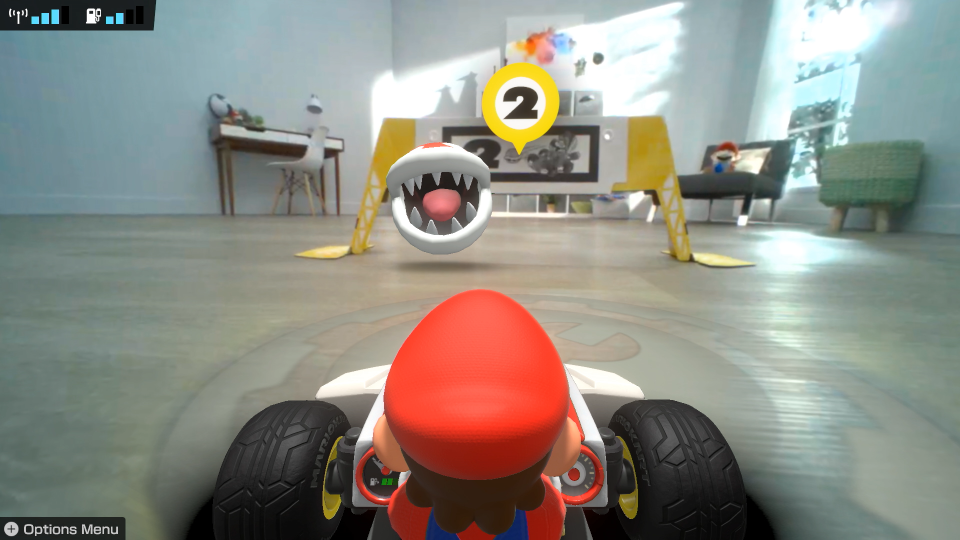Video gaming may be 'exercise' and helpful to your child's brain, study concludes
Imagine your kid is playing a video game. Now think about how hard it can be to get them to answer you when you ask a question.
Frustrated? Worried? That's what a lot of parents feel. But scientists say that video gaming may be helpful to your child's brain.
A newly released study found that children who played video games three or more hours a day show higher cognitive brain activity and are better at cognitive skills involving impulse control and working memory when compared with kids who never played them. Different genres of games, from shooter to sandbox to puzzle games may yield different skills, scientists said, cautioning that more research needs to be done. Even so, the study is the largest of its kind, assessing associations between video gaming and cognitive and brain function, and it's showing positive consequences from gaming.
The National Institute on Drug Abuse reported on the study on Oct. 24 after it appeared in JAMA Network Open. Scientists at the University of Vermont analyzed survey responses and cognitive and brain imaging data of more than 2,000 children in October 2019 and 2020. The kids already were involved in the nation’s largest long-term study of child brain development and health in the United States, called the ABCD or Adolescent Brain Cognitive Development study, sponsored by the National Institutes on Health. Children who took part in the video gaming research were 9 to 10 years old, and they'll be revisited for more evaluation when they're older.
“While we cannot say whether playing video games regularly caused superior neurocognitive performance, it is an encouraging finding, and one that we must continue to investigate in these children as they transition into adolescence and young adulthood,” said Bader Chaarani, Ph.D., assistant professor of psychiatry at the University of Vermont and the lead author on the study. “Many parents today are concerned about the effects of video games on their children’s health and development, and as these games continue to proliferate among young people, it is crucial that we better understand both the positive and negative impact that such games may have.”
Dr. Nora Volkow, director of the National Institute on Drug Abuse, said the research looks good.
“It does show that (for) these children who are playing video games for long periods of time, it’s acting like an exercise," Volkow said in an interview with The Enquirer.
Specifically, the researchers found that the children who reported playing video games for 21 hours a week were faster and more accurate on cognitive tasks than those who never played. The scientists also analyzed functional MRI brain imaging for each child and found that the gamers showed higher brain activity in regions of the brain associated with attention and memory than did the kids who never played. They also had more brain activity in the frontal brain regions, which are associated with more cognitively demanding tasks and less brain activity in regions related to vision. That means that in kids who play video games a lot, this area of the brain may become more efficient at visual processing, experts said.
They think the patterns might stem from practicing tasks related to impulse control and memory while playing video games, which can be cognitively demanding, and that these changes may lead to improved performance on related tasks.
What did this group of kids look like?
Scientists measured the study participants' height and weight and evaluated the kids' mental health symptoms. The children completed a self-reported screen-time survey that included the specific question about time spent playing video games. In the broader study, kids were picked from states across the country and matched to demographics representing children as a whole in the United States.
The researchers intentionally picked kids with longer screen time than what's recommended by the American Academy of Pediatrics. The reasoning behind limiting time is broad, including concerns about potential obesity, lack of sleep and socializing skills. "Heavy users of video games are at risk of Internet gaming disorder," the pediatric academy says, but the American Psychiatric Association's Diagnostic and Statistical Manual of Mental Disorders also notes that there's insufficient evidence on whether it's a unique mental health disorder and says gaming must cause "significant impairment or distress" in several aspects of a person's life before it's considered a disorder.
Either way, the scientists who researched children for the brain activity and cognitive skills made it clear in their report, they are not suggesting that parents amp up on their kids' game-playing time.

The scientists said it is possible that kids who already are more skilled in these cognitive areas are simply more interested or likely to play video games.
What about the negative effects of playing video games?
Other studies have reported associations between video gaming and increases in depression, violence and aggressive behavior. But this one didn't find that to be the case. The gamers did tend to report higher mental health and behavioral issues compared to children who didn't play video games, the research showed an insignificant statistical difference. That means researchers couldn't rule out whether the trend reflected a true association or chance.
National institute director Volkow said people may be more inclined to think about the bad effects of video gaming because it elicits conversation. “Most of the attention on social media has been targeted toward negative consequences of video gaming," she said. "This study suggests that there may also be cognitive benefits associated with this popular pastime, which are worthy of further investigation.”
She said that the science could be used to help people. One example: "For children with ADHD, using video games as a form of exercise to train them to sustain attention."
And it's perfectly understandable, Volkow said, that parents and other caregivers might wonder, is game playing a hazard to my child's health?
It might be.
If children are foregoing other activities, such as school or homework, sleep or socializing with friends outside of their gaming or a combination of activities, Volkow said, that could signal a number of problems.
If that's the case, Volkow said, "Call your pediatrician."

"
This article originally appeared on Cincinnati Enquirer: Video gaming: Helpful to your child's brain? New study says yes

